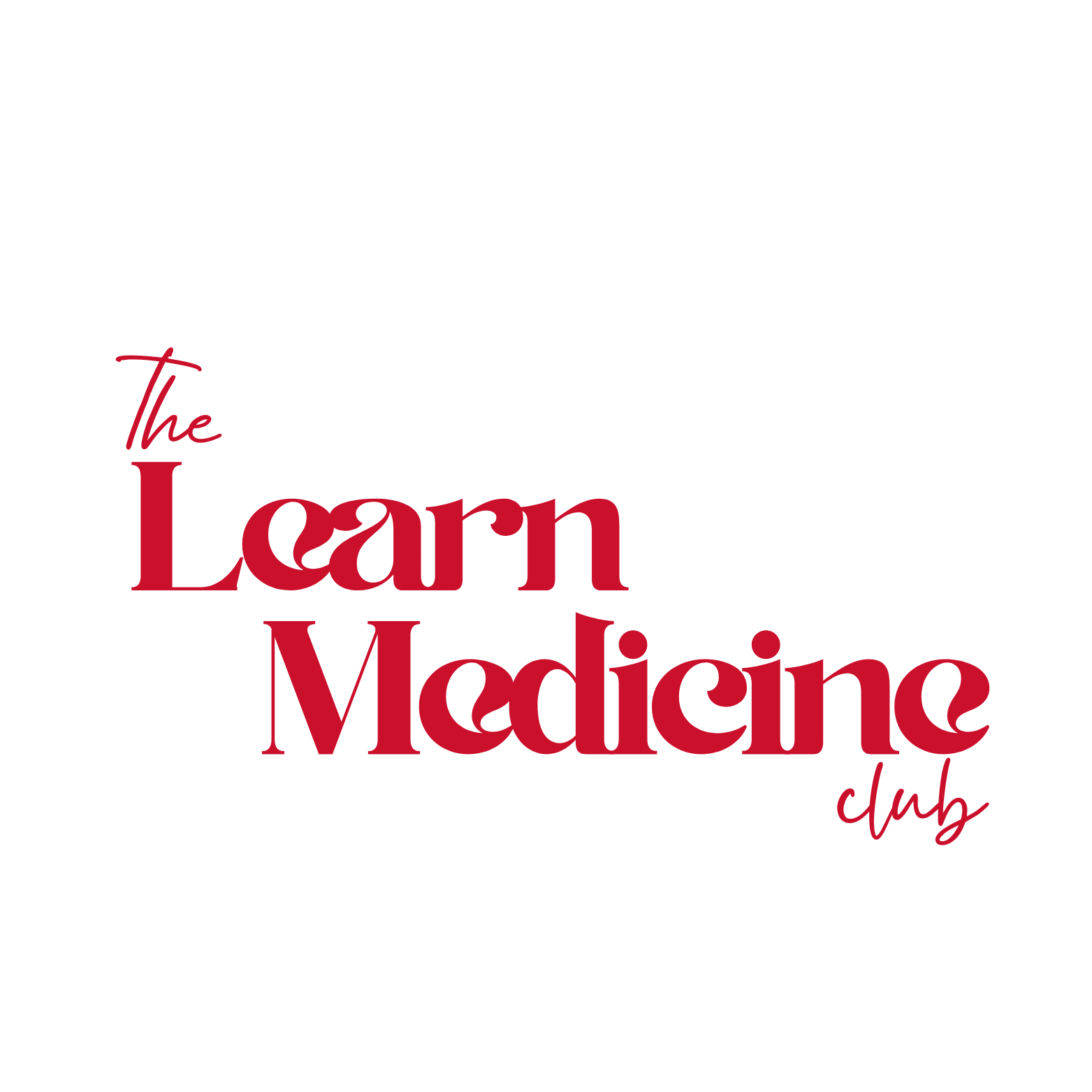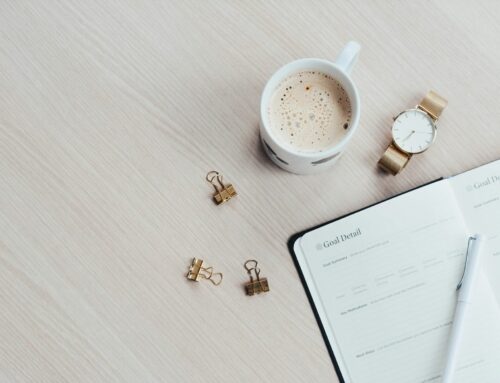Do you know the secret to actually enjoying medical school? Avoiding burnout and staying on top of your mental and physical health through smart systems and routines. I’ve had hands-on experience with this when I almost crashed while studying for the UCAT in the summer before applying to med school. Since then, I improved so much in terms of my health routine, and investing in it allowed me to perform better in my studies and be more resilient against stress and a big workload. I want to share my best healthy study habits with you, so that you can also enjoy medical school, not feel like you are merely surviving it.
This post is all about healthy habits you can easily implement in your daily routine that will help you study and focus better.
This post may contain affiliate links. This means that if you click on my link and make a purchase, I may receive a small commission – at no extra cost to you. Full disclosure here.
Healthy habits for medical students

Keep moving your body even when you “don’t have time”
It’s sooo important to make moving your body a priority in spite of your busy schedule. I know best how frustrating it is that when you’re focusing on school, you feel like you’re behind on your fitness journey and vice versa. But it’s important to make sure you include some form of movement weekly, that works with your schedule, not against it. You can buy a gym membership and try going there around three times a week for a quick cardio session (for your heart, brain and resilience), followed by a routine of strength training. It’s important to get into this habit early, as the benefits of strength training in women as you age are well-researched and extremely relevant. You can also opt for pilates or yoga, both good for training your muscles while training mindfulness as well. Even on days when it looks like you don’t have time, a simple walk in the park is better than not going out at all.
- I love this pilates set by ElaraFit. It’s so good for its price, and I always take it with me to my local pilates studio or at home, because it makes the experience so much more enjoyable. I also like this JUNA Pilates Board because it makes working out at home so accessible and easy.
- This yoga mat is so good for slippery hands, so I really recommend it.
- I wanna mention this running jacket as well, because it’s been very useful to me to have on hand and move my body even when the weather wasn’t on my side.
Never skip your (healthy) breakfast
When mornings are extremely early and you want to sleep in as much as you can, but also run out the door in time, breakfast is the first thing that’s easy to sacrifice… and that’s the first mistake most people make. Automatically, when you are running on an empty stomach, your brain power is lower, and your mood will be worse, plus you’ll eat more at lunchtime, and you’ll resist unhealthy cravings harder.
The other mistake is that the breakfast you’re grabbing is high in sugar and processed carbs, which will just give you a glucose spike in your blood, that will fall in the next hours, leading to low blood sugar, more hunger and lower energy. It’s important to have a protein-based breakfast, with complex carbs, before your coffee. To make things easier, I recommend meal prepping your breakfasts, and for this, I usually use these simple casseroles from Amazon because they are made of glass and keep things tasting good even after a long time in the fridge.
Create unwind habits and schedule breaks
The best way to avoid burnout is to know your maximum capacity for studying and work accordingly. For example for me, I can study for a couple of hours at a time (3-5), most productively, in the morning. I know that once I have lunch, I need a break, and also that if I get past 8 pm, I probably need to slow down, focus on tasks that require less brain power and prepare to wrap it up. Other people might work well with tools such as the Pomodoro method, or studying for 1 hour until the break, and that’s fine too, obviously :). The important thing is how you use your break. Because scrolling on Instagram or TikTok doesn’t allow your brain to rest, recover and get ready for a new study session. You can check your messages, but, ideally, you’ll use that time to grab a drink, eat lunch, talk to a friend (for shorter breaks), or go for a walk, take a nap, take a shower, or get to the gym (for longer breaks). But you should have a routine and be consistent about the time you close the books, leading to my next point.
Create a good bedtime routine
Having a solid bedtime routine is the absolute basis for performing well and actually enjoying medical school. It’s the thing that will show you results immediately. This is not high school anymore, you can’t finish up homework at 3 am, sleep until 6, grab 3 coffees and call it a day. Medical school requires constant, long-term focus, resilience and discipline to get through harder tasks, all of which require quality sleep. To achieve quality sleep, you’ll need a solid bedtime routine that ensures you are actually resting. These are my non-negotiables and essentials:
- A consistent bedtime that allows you to get at least 8 hours of sleep per night;
- A constant time at which you end any studying so that you can focus on going to sleep.
- I’ll close any source of blue light 1-2 hours before going to bed. I personally use this mushroom bedside lamp, and for my last study session before wrapping up, I use blue-light glasses.
- Taking a magnesium-based supplement, I discovered it improves my quality of sleep so much. I usually take either Magnesium Bisglycinate or this Night supplement from Good Routine (not sponsored, just a personal favourite);
- Letting the windows open before bed and making sure the room is not too warm.
Mindfulness is key
Honestly, this is the only thing that will keep you going when the times get tough. Because they will, trust me. But it’s the way you shift your mentality to understand that everything ultimately works out in your favour that will change the game. Finding joy in the little things and in the most casual of days, romanticising even the gloomy times and finding the positive side in every situation is a muscle that can be trained exactly like going to the gym. To build the habit of practising mindfulness, I recommend:
- Practising meditation as much as you can: you can even start on YouTube.
- Following creators such as UnJaded Jade or Tam Kaur will inspire you to shift your mindset and achieve your goals.
- Practising gratitude. I recommend using something like The 5 Minute Journal to get started and track your progress. Even showing up for 5 minutes can make a difference.
I hope these tips help you create a routine around studying, and make the most out of med school because you can really have a great time if you take care of yourself and prioritise sustainable long-term study ethics, instead of all-nighters and cramming before exams at the expense of your wellbeing. As always, feel free to reach out!


